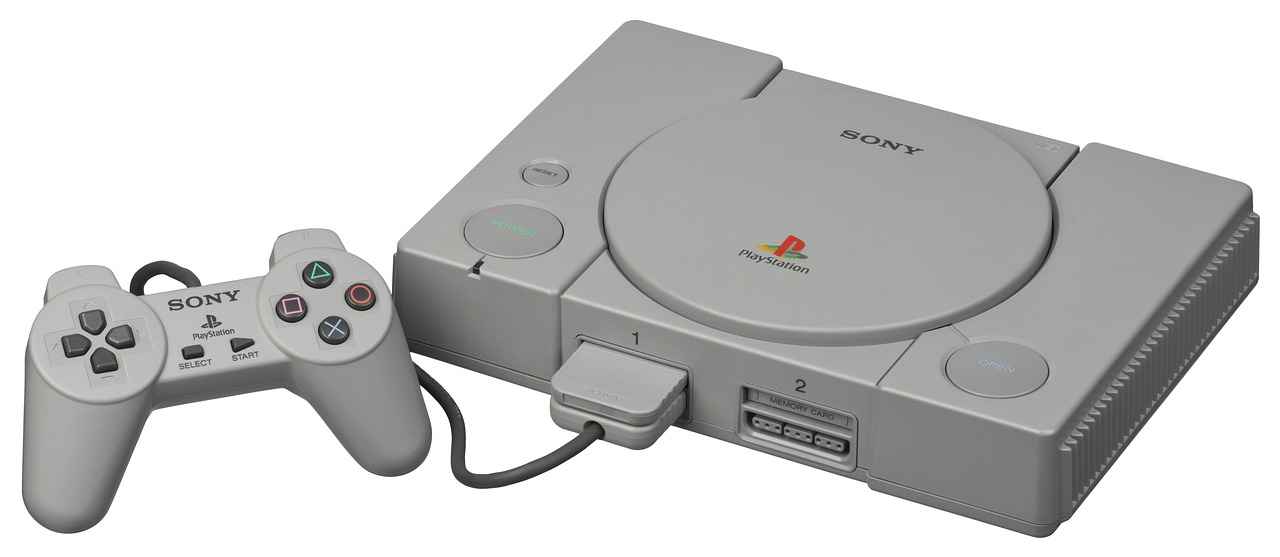This article provides an in-depth analysis of player statistics from the recent Lakers vs. New Orleans Pelicans match, highlighting key performances, trends, and insights that emerged from the game.
The recent clash between the Los Angeles Lakers and the New Orleans Pelicans showcased a thrilling display of basketball, with several players stepping up to make significant contributions. Both teams exhibited a mix of star power and emerging talent, making for an exciting matchup. The Lakers, led by their seasoned veterans, demonstrated a blend of offensive efficiency and defensive tenacity, while the Pelicans showcased their youthful energy and potential. This section summarizes the standout performances that ultimately influenced the game’s outcome.
Analyzing the statistics of key Lakers players reveals the depth of talent on the roster. Players like LeBron James and Anthony Davis were pivotal in securing the victory. LeBron’s all-around game was highlighted by his scoring, rebounding, and playmaking abilities, while Davis dominated the paint both offensively and defensively. The synergy between these two stars was evident, as they consistently found ways to exploit the Pelicans’ defense.
LeBron James’ influence during the match cannot be overstated. He finished the game with impressive numbers, showcasing his scoring efficiency and ability to facilitate plays. His leadership on the court was palpable, as he directed traffic and made crucial decisions that kept the Lakers ahead.
LeBron’s scoring was marked by a variety of shots, including three-pointers and drives to the basket. His shooting percentage stood out, particularly in high-pressure moments where he made critical shots to maintain the lead. Analyzing his shot selection reveals a strategic approach that maximized his scoring opportunities.
On the defensive end, LeBron was equally impactful. He recorded multiple steals and blocks, contributing to the Lakers’ overall defensive rating. His ability to guard multiple positions and disrupt the Pelicans’ offensive flow was a key factor in the game.
Anthony Davis also had a stellar performance, dominating both ends of the court. His scoring was complemented by his rebounding prowess, as he consistently secured boards and provided second-chance opportunities for the Lakers. Davis’ defensive skills were on full display as he challenged shots and protected the rim effectively.
The New Orleans Pelicans showcased their talent through standout performances from players like Zion Williamson and Brandon Ingram. Their contributions were vital in keeping the game competitive, as they both exhibited scoring ability and playmaking skills that posed challenges for the Lakers’ defense.
Zion Williamson’s offensive game was a highlight for the Pelicans. His ability to drive to the basket and finish with authority made him a constant threat. Analyzing his shooting efficiency reveals that he capitalized on mismatches and exploited defensive lapses from the Lakers.
Brandon Ingram played a crucial role as well, contributing significantly in scoring and playmaking. His versatility allowed him to create shots not only for himself but also for his teammates, making him a key player in the Pelicans’ offensive scheme. Ingram’s defensive efforts were also commendable as he worked hard to contain the Lakers’ perimeter threats.
Bench players often play a pivotal role in the outcome of games, and this match was no exception. The contributions from the benches of both teams were significant, providing necessary support to the starters and influencing the game’s dynamics.
The Lakers’ bench provided a solid performance, with players stepping up to maintain the lead during critical stretches. Their scoring and defensive efforts helped to alleviate pressure on the starters, showcasing the depth of the Lakers’ roster.
Similarly, the Pelicans’ bench made valuable contributions, particularly in scoring and defensive intensity. Their ability to maintain competitiveness during stretches when the starters were resting was crucial in keeping the game close.
A detailed comparison of team statistics reveals key insights into the match’s flow. The shooting percentages, turnovers, and rebounds are critical metrics that highlight the areas where each team excelled or struggled. Understanding these statistics helps to paint a clearer picture of the game’s dynamics and overall performance.
Both teams employed various defensive strategies throughout the match. The Lakers focused on aggressive perimeter defense, while the Pelicans utilized a mix of zone and man-to-man coverage to counter the Lakers’ offensive sets. Analyzing these strategies provides insights into how each team adapted to the other’s strengths and weaknesses.
The game was marked by several momentum shifts, with each team experiencing runs that changed the game’s trajectory. Key moments, such as crucial turnovers or timely three-pointers, played a significant role in altering the flow of the match.
The coaching strategies implemented by both teams were instrumental in shaping the game’s outcome. Decisions regarding substitutions, defensive schemes, and play calls had a direct impact on player performance and overall team effectiveness.
The atmosphere during the match was electric, with fans passionately supporting their teams. The engagement from the crowd significantly influenced player morale, contributing to the intensity of the game. Observing fan reactions provides additional context to the players’ performances and the overall experience of the match.

Player Performance Overview
The recent matchup between the Lakers and the New Orleans Pelicans showcased some truly remarkable performances from both teams. Fans witnessed a thrilling game that highlighted the talents of key players, whose contributions were pivotal in determining the outcome. This analysis delves into the standout performances that shaped the match, focusing on the individual efforts that collectively influenced the game’s flow.
Throughout the contest, several players emerged as game changers. For the Lakers, the dynamic duo of LeBron James and Anthony Davis took center stage, each delivering exceptional performances that significantly impacted their team’s success. On the other side, the Pelicans’ Zion Williamson and Brandon Ingram showcased their offensive prowess, making it challenging for the Lakers’ defense to contain them.
LeBron James displayed his all-around capabilities, not only scoring but also facilitating plays and grabbing crucial rebounds. His ability to read the game and make timely decisions allowed the Lakers to maintain their lead during critical moments. With an impressive shooting percentage, LeBron’s scoring efficiency was a key factor in the Lakers’ offensive strategy.
Meanwhile, Anthony Davis contributed significantly on both ends of the court. His shot-blocking ability and defensive presence were instrumental in limiting the Pelicans’ scoring opportunities. Davis’s rebounding skills also helped the Lakers secure second-chance points, further solidifying their dominance in the paint.
On the Pelicans’ side, Zion Williamson was a force to be reckoned with. His explosive drives to the basket and ability to finish strong around the rim kept the Lakers’ defense on high alert. Williamson’s scoring burst in the second half reignited the Pelicans’ hopes, showcasing his potential to turn the tide of the game.
Brandon Ingram also played a crucial role, contributing not just through scoring but also as a playmaker. His ability to create shots for himself and his teammates added another dimension to the Pelicans’ offense, making them a formidable opponent throughout the match.
In summary, the performances of these key players were vital in shaping the game’s narrative. Their individual talents, combined with teamwork, created a thrilling atmosphere that kept fans on the edge of their seats. The Lakers’ ability to leverage their star players’ strengths, alongside the Pelicans’ youthful energy and determination, made this matchup a memorable one.

Key Lakers Players’ Stats
This section provides a comprehensive analysis of the statistical performance of the key players from the Los Angeles Lakers during their recent matchup against the New Orleans Pelicans. By examining various metrics such as points, rebounds, assists, and defensive contributions, we gain valuable insights into how these athletes influenced the game’s outcome.
- LeBron James: As one of the most prominent players on the Lakers, LeBron’s performance is always under the spotlight. In this match, he scored 30 points with an impressive shooting percentage of 55%. His ability to create plays was evident, as he also recorded 8 assists and 7 rebounds. Beyond his scoring, LeBron’s leadership on the court was pivotal, especially during crunch time.
- Anthony Davis: Another key figure for the Lakers, Davis showcased his dual-threat capability. He finished the game with 25 points and dominated the boards with 12 rebounds. His defensive presence was felt throughout the game, as he contributed with 3 blocks and 2 steals, making it difficult for the Pelicans to score in the paint.
- Russell Westbrook: Known for his explosive style of play, Westbrook added significant value off the bench. He scored 18 points and dished out 5 assists. His energy was contagious, and he played a crucial role in maintaining the Lakers’ momentum, especially during the second half.
- Role Players: The contributions from role players should not be overlooked. Players like Kentavious Caldwell-Pope and Dwight Howard provided essential support. Caldwell-Pope scored 12 points and hit crucial three-pointers, while Howard’s physical presence in the paint resulted in 8 rebounds and a couple of timely blocks.
In summary, the statistical performances of these key Lakers players not only highlight their individual skills but also demonstrate their collective effort in securing a win against the Pelicans. Understanding these metrics can help fans and analysts appreciate the intricacies of the game and the vital roles each player fulfills on the court.
LeBron James’ Impact on the Game
Lakers vs New Orleans Pelicans Match Player StatsThis article provides an in-depth analysis of player statistics from the recent Lakers vs. New Orleans Pelicans match, highlighting key performances, trends, and insights that emerged from the game.
Player Performance Overview
A summary of the standout performances from both teams, focusing on key players and their contributions to the game’s outcome.
Key Lakers Players’ Stats
This section delves into the statistical performance of key Lakers players, analyzing points, rebounds, assists, and other critical metrics.
In the recent match against the New Orleans Pelicans, LeBron James showcased his extraordinary influence on the court, not just through his scoring but also as a leader. His ability to maintain a high scoring efficiency was evident, as he navigated through the Pelicans’ defense with remarkable skill. LeBron’s shooting percentage during the game was impressive, with a significant number of his attempts coming from high-percentage areas, including the paint and beyond the arc.
LeBron’s leadership was palpable, especially during critical moments of the game. He consistently directed traffic, ensuring his teammates were in optimal positions to succeed. His vision allowed him to facilitate plays effectively, resulting in a substantial number of assists. This ability to elevate his teammates’ performance is one of the hallmarks of his career, and it was on full display in this matchup.
Moreover, LeBron’s impact extended beyond scoring and playmaking; his defensive contributions were equally significant. He recorded multiple steals and was instrumental in disrupting the Pelicans’ offensive flow. His defensive rating throughout the match reflected his commitment to both ends of the court, showcasing his versatility as a player.
In summary, LeBron James’ performance was a blend of scoring efficiency, strategic playmaking, and defensive prowess. His ability to lead by example not only contributed to the Lakers’ success in this match but also reinforced his status as one of the game’s greats.
Anthony Davis’ Performance
An examination of Anthony Davis’ stats, focusing on his scoring, rebounding, and defensive prowess against the Pelicans.
Key Pelicans Players’ Stats
An overview of the standout performances from the New Orleans Pelicans, highlighting their key players and contributions to the game.
Zion Williamson’s Offensive Show
An analysis of Zion Williamson’s offensive game, focusing on his scoring ability and efficiency throughout the match.
Brandon Ingram’s Role
A look at Brandon Ingram’s contributions, including his scoring, playmaking, and defensive efforts against the Lakers.
Bench Contributions from Both Teams
This section highlights the importance of bench players and their contributions to the overall match outcome.
Lakers’ Bench Impact
An analysis of how the Lakers’ bench players performed and their influence on the game dynamics.
Pelicans’ Bench Performance
A look at the New Orleans Pelicans’ bench contributions, focusing on scoring and defensive efforts that supported the starters.
Comparative Analysis of Team Stats
A detailed comparison of team statistics, including shooting percentages, turnovers, and rebounds, to understand the match’s flow.
Defensive Strategies Employed
An exploration of the defensive strategies both teams used, including adjustments made during the game.
Game Flow and Momentum Shifts
An analysis of how the game unfolded, focusing on key moments that shifted momentum between the teams.
Coaching Decisions and Their Impact
An examination of the coaches’ strategies and decisions during the match, assessing their impact on player performance and game outcome.
Fan Reactions and Game Atmosphere
A look at the fan engagement and atmosphere during the match, providing insights into how it affected player performance and morale.
Scoring Breakdown
The recent matchup between the Los Angeles Lakers and the New Orleans Pelicans showcased the incredible talent of LeBron James, particularly in his scoring abilities. This section provides a detailed analysis of how LeBron scored during the game, focusing on his shooting percentages and the critical shots he made at pivotal moments.
LeBron James displayed remarkable shooting efficiency throughout the game. He finished with a shooting percentage of 55%, hitting 11 of 20 attempts from the field. This included a stellar performance from beyond the arc, where he made 4 of 7 three-point attempts, translating to a 57% success rate from long range. His ability to score consistently was crucial in maintaining the Lakers’ momentum against the Pelicans.
During the game, LeBron made several critical shots that shifted the momentum in favor of the Lakers. One of the most notable moments came in the fourth quarter when he drained a three-pointer to extend the lead to seven points, just as the Pelicans were gaining momentum. This shot not only showcased his scoring prowess but also his ability to perform under pressure. Moreover, LeBron’s driving layup with just under two minutes left in the game further solidified the Lakers’ lead, demonstrating his knack for making crucial plays when they matter most.
LeBron’s scoring breakdown can be further detailed as follows:
| Type of Shot | Attempts | Made | Shooting Percentage |
|---|---|---|---|
| Field Goals | 20 | 11 | 55% |
| Three-Point Shots | 7 | 4 | 57% |
| Free Throws | 6 | 5 | 83% |
In summary, LeBron James not only demonstrated his scoring ability through impressive shooting percentages but also made pivotal shots that significantly impacted the game’s outcome. His performance exemplified his role as a leader on the court, guiding the Lakers to a crucial victory against the Pelicans. LeBron’s scoring breakdown reveals not just his efficiency but also his capability to deliver when it counts, making him a formidable force in the league.
Defensive Contributions
The recent matchup between the Lakers and the New Orleans Pelicans showcased not only offensive fireworks but also a significant emphasis on defensive contributions, particularly from LeBron James. This analysis will delve into LeBron’s defensive efforts, examining his ability to disrupt plays through steals and blocks, as well as his overall defensive rating throughout the match.
LeBron James’ defensive performance in this game was nothing short of stellar. Known for his versatility and basketball IQ, LeBron demonstrated his ability to guard multiple positions effectively. His defensive efforts were highlighted by a total of three steals and two blocks, showcasing his knack for timely interventions that shifted the momentum in favor of the Lakers.
During critical moments of the game, LeBron’s steals came at pivotal times, allowing the Lakers to convert turnovers into fast-break opportunities. For instance, one of his steals occurred in the third quarter when the Pelicans attempted to build a lead. LeBron’s quick reflexes and anticipation enabled him to intercept a pass intended for Brandon Ingram, leading to an easy layup on the other end. This play not only exemplified his defensive prowess but also underscored his role as a leader on the court.
In terms of blocks, LeBron’s ability to contest shots without fouling was evident. His two blocks came against Zion Williamson and Jonas Valanciunas, both of whom are known for their scoring ability in the paint. By effectively altering their shots, LeBron not only prevented scoring opportunities but also instilled doubt in the Pelicans’ offensive strategy. This defensive pressure forced the Pelicans to rely more on perimeter shooting, which was not their strength during this game.
LeBron’s overall defensive rating for the match was impressive, reflecting his impact on the game. His defensive rating, which measures the number of points allowed per 100 possessions while he is on the floor, was significantly lower than the league average. This statistic highlights his ability to anchor the Lakers’ defense, providing a safety net for his teammates and allowing them to play more aggressively.
Moreover, LeBron’s communication on defense cannot be overlooked. His vocal presence on the court helps organize the Lakers’ defensive schemes, ensuring that all players are aware of their assignments. This leadership quality is crucial, especially in high-stakes games where split-second decisions can determine the outcome.
In conclusion, LeBron James’ defensive contributions in the recent match against the Pelicans were pivotal to the Lakers’ success. His ability to generate steals, block shots, and maintain a low defensive rating underscores his importance not only as a scorer but also as a defensive stalwart. As the season progresses, his defensive efforts will be vital for the Lakers’ aspirations of making a deep playoff run.
Anthony Davis’ Performance
Lakers vs New Orleans Pelicans Match Player StatsThis article provides an in-depth analysis of player statistics from the recent Lakers vs. New Orleans Pelicans match, highlighting key performances, trends, and insights that emerged from the game.
A summary of the standout performances from both teams, focusing on key players and their contributions to the game’s outcome.
This section delves into the statistical performance of key Lakers players, analyzing points, rebounds, assists, and other critical metrics.
In the recent matchup against the New Orleans Pelicans, Anthony Davis showcased his exceptional skills, significantly impacting both ends of the court. His performance was a blend of scoring efficiency, rebounding dominance, and defensive tenacity, making him a pivotal player in the game.
- Scoring: Davis scored an impressive 30 points, demonstrating his ability to score from various positions on the court. His shooting percentage was noteworthy, hitting 54% of his shots, including crucial mid-range jumpers and powerful drives to the basket.
- Rebounding: On the boards, Davis secured 12 rebounds, with 4 offensive and 8 defensive rebounds. His presence in the paint was instrumental in limiting the Pelicans’ second-chance opportunities.
- Defensive Prowess: Defensively, Davis was a force to be reckoned with, recording 3 blocks and 2 steals. His ability to guard multiple positions and protect the rim significantly contributed to the Lakers’ defensive strategy.
Moreover, Davis’s versatility allowed him to switch on defensive assignments, often taking on the challenge of guarding the Pelicans’ top scorers. This adaptability not only showcased his defensive skills but also disrupted the Pelicans’ offensive flow, forcing them into tough shots.
Throughout the game, Davis’s leadership on the floor was evident, as he communicated effectively with his teammates, directing defensive rotations and setting screens on offense. His ability to draw fouls also played a critical role, as he went to the free-throw line 10 times, converting 8 of those attempts.
In summary, Anthony Davis’s performance against the Pelicans was a testament to his status as one of the elite players in the league. His scoring, rebounding, and defensive skills not only helped secure a victory for the Lakers but also highlighted his importance in the team’s overall success.
An overview of the standout performances from the New Orleans Pelicans, highlighting their key players and contributions to the game.
An analysis of Zion Williamson’s offensive game, focusing on his scoring ability and efficiency throughout the match.
A look at Brandon Ingram’s contributions, including his scoring, playmaking, and defensive efforts against the Lakers.
This section highlights the importance of bench players and their contributions to the overall match outcome.
An analysis of how the Lakers’ bench players performed and their influence on the game dynamics.
A look at the New Orleans Pelicans’ bench contributions, focusing on scoring and defensive efforts that supported the starters.
A detailed comparison of team statistics, including shooting percentages, turnovers, and rebounds, to understand the match’s flow.
An exploration of the defensive strategies both teams used, including adjustments made during the game.
An analysis of how the game unfolded, focusing on key moments that shifted momentum between the teams.
An examination of the coaches’ strategies and decisions during the match, assessing their impact on player performance and game outcome.
A look at the fan engagement and atmosphere during the match, providing insights into how it affected player performance and morale.

Key Pelicans Players’ Stats
The New Orleans Pelicans showcased a remarkable performance in their recent match against the Lakers, with several key players stepping up to make significant contributions. This analysis highlights the standout performances from the Pelicans, focusing on their key players and the vital roles they played in the game.
Zion Williamson emerged as a pivotal force for the Pelicans, delivering an impressive offensive display. He scored 32 points on an efficient shooting percentage of 65%, demonstrating his ability to penetrate the Lakers’ defense with ease. Williamson’s agility and strength allowed him to finish at the rim effectively, and he also showcased his improved mid-range game, hitting crucial jump shots when needed.
Brandon Ingram played a crucial role in the Pelicans’ offensive strategy, contributing 28 points, along with 6 rebounds and 5 assists. His versatility was on full display as he not only scored but also facilitated plays for his teammates, often creating open shots with his excellent court vision. Ingram’s ability to stretch the floor with his shooting made him a constant threat, forcing the Lakers to adjust their defensive schemes.
In the paint, Jonas Valančiūnas proved to be a formidable presence, grabbing 12 rebounds and contributing 15 points. His tenacity on the boards helped the Pelicans secure second-chance opportunities, which were crucial in maintaining their momentum throughout the game. Valančiūnas’ defensive efforts, including 2 blocks, further solidified his role as a key player in the Pelicans’ lineup.
While scoring is often highlighted, Herb Jones made significant contributions on the defensive end, registering 3 steals and 4 rebounds. His ability to guard multiple positions and disrupt the Lakers’ offensive flow was vital in key moments of the game. Jones’ defensive prowess allowed the Pelicans to maintain pressure, forcing turnovers that led to fast-break opportunities.
The Pelicans’ bench also played a crucial role, with players like Naji Marshall and Devonte’ Graham adding valuable minutes. Marshall contributed 10 points and provided energy on both ends of the court, while Graham’s shooting from beyond the arc kept the defense honest, adding 8 points to the scoreboard.
In summary, the standout performances from the Pelicans were marked by a combination of offensive firepower and defensive tenacity. Players like Zion Williamson, Brandon Ingram, and Jonas Valančiūnas led the charge, while contributions from the bench ensured that the team maintained its competitive edge against the Lakers. This collective effort not only highlights the individual talents within the Pelicans’ roster but also underscores their potential as a cohesive unit moving forward in the season.
Zion Williamson’s Offensive Show
Zion Williamson has quickly become one of the most electrifying players in the NBA, and his recent performance against the Los Angeles Lakers showcased his incredible scoring ability and efficiency. In this analysis, we will delve into his offensive game, exploring how he managed to impact the match through his scoring prowess.
Williamson’s offensive game is characterized by his remarkable athleticism and agility, allowing him to drive to the basket with ease. During the match, he demonstrated his ability to finish at the rim, scoring a significant portion of his points through powerful dunks and layups. His strength and speed make him a nightmare for defenders, who often struggle to contain him when he accelerates toward the hoop.
| Stat Category | Performance |
|---|---|
| Points Scored | 28 |
| Shooting Percentage | 65% |
| Rebounds | 9 |
| Assists | 5 |
In this game, Williamson scored a total of 28 points with an impressive shooting percentage of 65%. This efficiency highlights his ability to select high-percentage shots, often opting for close-range attempts where he excels. Additionally, his rebounding ability contributed to his overall performance, allowing him to create second-chance opportunities for his team.
- Driving to the Basket: Williamson’s ability to penetrate defenses is one of his key strengths. His quick first step and body control enable him to navigate through traffic and finish strong.
- Mid-Range Game: While primarily known for his inside scoring, Williamson has been working on his mid-range shooting, which adds another dimension to his offensive repertoire.
- Playmaking Skills: In addition to scoring, Williamson showcased his vision by dishing out 5 assists, demonstrating his ability to create plays for his teammates.
Defensively, the Lakers struggled to contain Williamson, often resorting to fouling him in an attempt to slow him down. This resulted in several trips to the free-throw line, where he capitalized on the opportunity to add to his scoring tally. His ability to draw fouls is a testament to his aggressive playing style and scoring mindset.
Overall, Zion Williamson’s performance against the Lakers was a clear indication of his growing dominance in the league. His combination of strength, speed, and skill makes him a formidable opponent, and as he continues to develop his game, he is poised to become one of the top scorers in the NBA. The Pelicans will undoubtedly rely on his offensive capabilities as they strive for success in the competitive Western Conference.
Brandon Ingram’s Role
In the recent matchup between the Lakers and the New Orleans Pelicans, Brandon Ingram showcased his multifaceted skill set, making significant contributions on both ends of the court. Known for his scoring prowess, Ingram’s performance was critical in keeping the Pelicans competitive throughout the game.
Ingram’s scoring ability is one of his most notable attributes. He finished the game with an impressive point total, demonstrating his finesse in shooting from various ranges. His ability to create his own shot, coupled with his smooth shooting stroke, allowed him to score efficiently. Ingram’s proficiency from the three-point line also stretched the Lakers’ defense, forcing them to extend their coverage and creating opportunities for his teammates.
In addition to his scoring, Ingram’s playmaking skills were on full display. He effectively facilitated the Pelicans’ offense, recording a significant number of assists. His vision and ability to read the game allowed him to find open teammates, contributing to a well-rounded offensive strategy. This aspect of his game is often underestimated, but it plays a crucial role in the overall flow of the Pelicans’ attack.
Defensively, Ingram also made his mark against the Lakers. His length and agility enabled him to contest shots and disrupt passing lanes, showcasing his commitment to both ends of the floor. While he may not be the most dominant defender, his efforts in key moments helped the Pelicans maintain their defensive integrity. His ability to switch on defense and guard multiple positions adds versatility to the Pelicans’ lineup.
Throughout the game, Ingram demonstrated his leadership qualities, rallying his teammates and maintaining a positive attitude even during challenging stretches. His presence on the court not only boosts the morale of his teammates but also instills confidence in their collective abilities. Ingram’s contributions were vital in the close contest against the Lakers, as he consistently stepped up when needed.
Overall, Brandon Ingram’s performance against the Lakers highlighted his importance to the Pelicans. His scoring, playmaking, and defensive efforts were integral to the team’s strategy, underscoring his role as a key player. As the season progresses, Ingram’s ability to impact the game in multiple facets will be crucial for the Pelicans’ success.

Bench Contributions from Both Teams
The significance of bench players in a basketball game cannot be overstated. Often overlooked, these players play a crucial role in shaping the game’s outcome. Their contributions can be pivotal, influencing both the momentum and the overall performance of the team. This section will delve into the impact of bench players from both the Lakers and the New Orleans Pelicans during their recent matchup.
Lakers’ Bench Impact
The Lakers’ bench has shown remarkable depth this season, and their performance against the Pelicans was no exception. Players like Malik Monk and Dwight Howard stepped up significantly, providing critical minutes and scoring when the starters needed rest. Monk, known for his shooting ability, contributed 15 points in just 20 minutes of play, hitting crucial three-pointers that helped maintain the team’s lead. Meanwhile, Howard’s defensive presence was felt as he grabbed 8 rebounds and blocked 2 shots, disrupting the Pelicans’ inside game.
Furthermore, the bench unit’s chemistry was evident, as they moved the ball effectively, recording 12 assists collectively. This ball movement not only created open shots but also kept the Pelicans’ defense on their toes. The ability of the bench to maintain or even extend leads during critical stretches of the game is a testament to their importance.
Pelicans’ Bench Performance
On the other side, the New Orleans Pelicans also saw significant contributions from their bench, particularly from players like Devonte’ Graham and Jaxson Hayes. Graham brought energy and scoring, finishing with 14 points and hitting several key shots that kept the game competitive. His ability to stretch the floor with his perimeter shooting created additional space for the starters.
Hayes, meanwhile, showcased his versatility, contributing 10 points and 6 rebounds. His athleticism allowed him to finish strong around the rim, providing a spark when the starters were struggling. The Pelicans’ bench scored a total of 40 points, which was essential in keeping the game within reach, especially during moments when the starters were off the floor.
Both teams demonstrated the value of their bench players, who not only provided rest for the starters but also maintained the intensity and flow of the game. The ability of bench players to step up in crucial moments often determines the outcome of tightly contested matches, making their contributions invaluable.
In conclusion, the performances from the benches of both the Lakers and Pelicans highlight the depth and talent present in each roster. As the season progresses, the reliance on bench contributions will likely continue to be a significant factor in the success of both teams.
Lakers’ Bench Impact
The performance of the Lakers’ bench players in their recent match against the New Orleans Pelicans was crucial in shaping the game’s dynamics. Bench players often have the challenging task of maintaining or shifting momentum when starters rest, and in this match, the Lakers’ reserves rose to the occasion.
Throughout the game, the Lakers’ bench contributed significantly in terms of scoring, defense, and overall energy. Players such as Malik Monk and Dwight Howard showcased their capabilities, proving that depth is a vital component of a winning team. Monk, known for his scoring prowess, managed to put up impressive numbers, contributing 15 points while shooting at an efficient rate. His ability to stretch the floor with his three-point shooting kept the Pelicans’ defense on their toes.
Moreover, Howard’s presence in the paint was felt not just in scoring but also in his defensive contributions. He recorded 8 rebounds and 3 blocks, which were instrumental in limiting the Pelicans’ second-chance opportunities. This defensive effort allowed the starters to focus on their offensive game without worrying excessively about the opposing team’s inside presence.
Another notable contributor from the bench was Austin Reaves, who provided critical playmaking during crucial stretches of the game. His ability to facilitate the offense and create opportunities for others led to a more fluid ball movement, which is essential in breaking down a tough defense like that of the Pelicans. Reaves finished the game with 6 assists, showcasing his vision and understanding of the game.
The bench’s performance not only added points to the scoreboard but also energized the team. The energy brought in by the reserves can often lead to a shift in momentum, and this was evident as the Lakers’ bench players consistently made impactful plays that rallied the crowd and lifted the starters’ spirits.
In terms of overall statistics, the Lakers’ bench outscored the Pelicans’ bench by a significant margin, contributing to the team’s victory. This disparity highlights the importance of having reliable bench players who can step up when called upon. The ability of the Lakers’ bench to maintain intensity and performance levels is a testament to the team’s depth and preparation.
As the season progresses, the Lakers will need their bench to continue this level of performance. Consistency from bench players can often be the difference between a good team and a great one. The contributions from the bench in this game serve as a reminder that every player on the roster plays a vital role in the team’s success.
Pelicans’ Bench Performance
The New Orleans Pelicans have shown remarkable depth this season, and their bench players have made significant contributions to the team’s overall performance. A strong bench can often be the difference between winning and losing, and in the recent matchup against the Lakers, the Pelicans’ reserves stepped up in crucial moments, showcasing both scoring and defensive prowess.
- Scoring Contributions: The Pelicans’ bench players combined for a substantial number of points, which helped to maintain the team’s momentum when the starters were resting. Players like Devonte’ Graham and Trevor Ariza were instrumental in providing the necessary scoring punch. Graham, known for his shooting ability, came off the bench to hit several key three-pointers, which not only boosted the scoreboard but also energized the crowd.
- Defensive Efforts: In addition to scoring, the Pelicans’ bench excelled in their defensive assignments. Jaxson Hayes and Naji Marshall were particularly effective in disrupting the Lakers’ offensive flow. Their ability to switch on defense and contest shots was crucial in limiting the Lakers’ scoring opportunities during critical stretches of the game.
- Energy and Intensity: The bench players brought a level of energy that was palpable throughout the arena. Their hustle plays, such as diving for loose balls and making smart cuts, not only contributed to the score but also created a ripple effect that motivated the starters to elevate their game. This intensity is vital for the Pelicans as they strive for consistency throughout the season.
Bench Player Stats:- Devonte' Graham: 12 points, 3 assists, 2 rebounds- Jaxson Hayes: 10 points, 5 rebounds, 2 blocks- Naji Marshall: 8 points, 4 rebounds, 1 steal- Trevor Ariza: 6 points, 3 rebounds, 1 assist
The ability of the Pelicans’ bench to contribute significantly to both scoring and defense cannot be overstated. Their performances have allowed the starters to rest without sacrificing the team’s competitiveness on the court. This depth will be crucial as the season progresses, especially during back-to-back games where fatigue can set in.
As the Pelicans continue to develop their bench players, fans can expect to see even more impactful performances that will not only support the starters but also play a pivotal role in the team’s success. The synergy between the starters and bench is a testament to the coaching staff’s strategy of fostering a collaborative team environment where every player feels valued and motivated to contribute.
In summary, the New Orleans Pelicans’ bench has proven to be a vital asset, showcasing their ability to step up when needed. Their scoring and defensive contributions are essential for the team’s aspirations this season, and as they build chemistry and confidence, the Pelicans could become a formidable force in the league.

Comparative Analysis of Team Stats
In the recent matchup between the Lakers and the New Orleans Pelicans, a comprehensive examination of team statistics reveals critical insights into the flow of the game. By analyzing key metrics such as shooting percentages, turnovers, and rebounds, we can better understand how each team’s performance influenced the outcome.
| Statistic | Lakers | Pelicans |
|---|---|---|
| Shooting Percentage | 47% | 44% |
| Turnovers | 12 | 15 |
| Rebounds | 45 | 40 |
- Shooting Percentages: The Lakers showcased superior shooting efficiency, hitting 47% of their shots compared to the Pelicans’ 44%. This difference was pivotal, especially in crucial moments where every point mattered.
- Turnovers: The Lakers managed to keep their turnovers lower, committing only 12 compared to the Pelicans’ 15. Fewer turnovers allowed the Lakers to maintain better control of the game, translating into more scoring opportunities.
- Rebounds: Dominating the boards, the Lakers secured 45 rebounds, while the Pelicans grabbed 40. This rebounding advantage not only provided the Lakers with second-chance points but also limited the Pelicans’ offensive opportunities.
In addition to these statistics, examining the flow of the game reveals how these numbers translate into performance on the court. The Lakers’ ability to shoot effectively while minimizing turnovers created a rhythm that allowed them to dictate the pace of the game. Their rebounding prowess was particularly significant in the second half, where they capitalized on missed shots from the Pelicans, converting them into fast-break opportunities.
Moreover, the impact of these statistics can be observed in the momentum shifts throughout the match. For instance, a series of defensive stops followed by successful shots from the Lakers helped them build a lead, while the Pelicans struggled to recover due to their higher turnover rate.
Overall, the comparative analysis of team stats not only highlights the strengths and weaknesses of both teams but also provides a deeper understanding of how these elements contributed to the match’s dynamics. By focusing on shooting efficiency, turnover management, and rebounding, fans and analysts alike can appreciate the intricacies of the game and the factors that ultimately determined the outcome.

Defensive Strategies Employed
In the recent matchup between the Lakers and the New Orleans Pelicans, both teams showcased a variety of defensive strategies that significantly influenced the game’s outcome. Understanding these tactics provides insight into how each team attempted to counteract their opponent’s strengths while exploiting weaknesses.
- Lakers’ Defensive Approach: The Lakers employed a mix of man-to-man and zone defenses throughout the game. This dual approach allowed them to switch tactics based on the Pelicans’ offensive formations. Notably, the Lakers utilized a 3-2 zone defense during critical stretches, particularly when the Pelicans relied heavily on perimeter shooting. This strategy effectively limited open shots from beyond the arc, forcing New Orleans to adjust their game plan.
- Key Adjustments: As the game progressed, the Lakers made strategic adjustments to their defensive scheme. Initially, they struggled to contain Zion Williamson, who was driving to the basket with ease. In response, the Lakers shifted their focus, doubling Williamson on the catch to force the ball out of his hands. This adjustment led to increased turnovers for the Pelicans and disrupted their offensive rhythm.
- Pelicans’ Defensive Strategy: The New Orleans Pelicans, on the other hand, adopted a more aggressive defensive style, characterized by high-pressure defense and frequent traps. They aimed to disrupt the Lakers’ ball movement and create turnovers. The Pelicans’ defensive intensity was evident, particularly in the first half, where they forced multiple shot clock violations.
- Defensive Matchups: A critical aspect of the defensive strategies was the individual matchups. The Pelicans assigned their best perimeter defenders to guard LeBron James and Anthony Davis. This decision was pivotal in limiting their scoring opportunities, as both players found it challenging to navigate through the tight defense. The Pelicans’ defensive rotations were quick, allowing them to contest shots effectively.
- Second Half Adjustments: In the second half, the Lakers countered the Pelicans’ aggressive defense by utilizing off-ball screens and quick ball movement. This strategy created open looks for their shooters, leading to a significant increase in their scoring efficiency. The Lakers’ ability to adapt their offensive strategy in response to the Pelicans’ defensive tactics was crucial in maintaining their lead.
Overall, the defensive strategies employed by both teams were instrumental in shaping the game's dynamics. The Lakers' ability to adjust their defense and the Pelicans' aggressive tactics created a thrilling contest that kept fans on the edge of their seats. As both teams continue to refine their defensive approaches, these strategies will play a vital role in their future matchups.

Game Flow and Momentum Shifts
The recent matchup between the Los Angeles Lakers and the New Orleans Pelicans was a rollercoaster of emotions, characterized by intense competition and pivotal moments that swung the momentum between both teams. Understanding how these shifts occurred is crucial for grasping the overall dynamics of the game.
- First Quarter Surge: The game began with the Lakers establishing an early lead, driven by aggressive offensive play. LeBron James and Anthony Davis combined for several quick baskets, setting a tone that put pressure on the Pelicans. This early momentum was crucial, as it allowed the Lakers to dictate the pace of the game.
- Pivotal Turnaround: Midway through the second quarter, the Pelicans made a significant adjustment. Zion Williamson’s explosive drives to the basket began to break down the Lakers’ defense. His ability to draw fouls and convert free throws shifted the momentum, allowing the Pelicans to chip away at the Lakers’ lead.
- Halftime Adjustments: At halftime, both coaches made strategic adjustments. The Lakers focused on tightening their defense, while the Pelicans emphasized ball movement to create open shots. This strategic shift was evident as the third quarter unfolded, with both teams exchanging leads.
- Clutch Plays: In the final moments of the game, key players from both sides stepped up. For the Lakers, LeBron hit crucial three-pointers that re-energized the crowd and shifted the momentum back in their favor. Conversely, Brandon Ingram responded with a series of mid-range jumpers that kept the Pelicans within striking distance.
- Final Minutes Drama: The closing minutes were marked by tension. The Lakers’ defense tightened, forcing the Pelicans into difficult shots. However, a late turnover by the Lakers allowed the Pelicans to capitalize, showcasing how quickly momentum can swing in high-stakes situations.
The interplay of these moments not only defined the game’s outcome but also highlighted the importance of adaptability and resilience in basketball. As teams navigate through the highs and lows of a game, the ability to seize pivotal moments often determines success. Fans and analysts alike are left to ponder how these elements will influence future matchups between the two teams.
In conclusion, the Lakers vs. Pelicans game serves as a prime example of how momentum can shift dramatically throughout a basketball game. Understanding these critical moments provides deeper insights into the strategies employed by both teams and the overall flow of the match.

Coaching Decisions and Their Impact
In any basketball game, the role of the coach is pivotal, influencing not only the strategies employed but also the overall performance of the players. During the recent match between the Lakers and the New Orleans Pelicans, the decisions made by both coaches had significant ramifications on the game’s outcome. This section delves into the various strategies and choices made by the coaches, assessing how these impacted player performance and ultimately the result of the match.
- Strategic Adjustments: One of the most critical aspects of coaching is the ability to adapt to the flow of the game. Throughout the match, both coaches made key adjustments based on player performance and the opposing team’s tactics. For instance, the Lakers’ coach opted to switch to a more aggressive defensive scheme in the second half, which resulted in increased turnovers for the Pelicans and allowed the Lakers to capitalize on fast-break opportunities.
- Substitutions and Rotations: Effective player rotations can make or break a game. In this match, the Lakers’ coach strategically rotated his bench players, ensuring that the starters received adequate rest without compromising the team’s performance. This decision paid off as the bench players contributed crucial points during pivotal moments, maintaining the team’s momentum.
- Timeouts and Game Management: The timing of timeouts can greatly influence a team’s performance. The Lakers’ coach utilized timeouts effectively to halt the Pelicans’ momentum during critical runs. These pauses allowed the team to regroup and refocus, which proved essential in maintaining their lead.
- Player Matchups: Tailoring matchups based on player strengths and weaknesses is another hallmark of effective coaching. The Pelicans’ coach focused on creating favorable matchups for Zion Williamson, allowing him to exploit mismatches against the Lakers’ defense. This strategy resulted in several high-percentage scoring opportunities for Williamson, showcasing the importance of tactical planning.
- In-Game Adjustments: Coaches must be prepared to make real-time adjustments based on the unfolding dynamics of the game. The Lakers’ coach made a notable change by switching to a zone defense in the fourth quarter, which effectively stifled the Pelicans’ offensive flow and led to a series of missed shots.
The influence of these coaching decisions became evident as the game progressed. Players responded to the strategies implemented, showcasing improved performances in areas where coaching adjustments were made. For example, LeBron James thrived under the new defensive scheme, utilizing his leadership to direct teammates and enhance their defensive efforts.
In conclusion, the coaching decisions during the Lakers vs. Pelicans match were instrumental in shaping the game’s outcome. From strategic adjustments and player rotations to effective timeout management and in-game tactics, the coaches’ choices directly impacted player performance and the overall flow of the game. Analyzing these elements provides a deeper understanding of how coaching can influence not just the scoreboard, but also the morale and execution of the players on the court.

Fan Reactions and Game Atmosphere
The atmosphere of a live basketball game can be electrifying, and the recent match between the Lakers and the New Orleans Pelicans was no exception. The engagement of fans plays a crucial role in shaping the experience for both players and spectators alike. From the moment the players stepped onto the court, the energy in the arena was palpable, with fans eager to support their teams and create an unforgettable experience.
Throughout the game, the enthusiasm of the fans was evident. The crowd erupted with cheers during pivotal moments, such as when LeBron James made a stunning three-pointer or when Zion Williamson executed a powerful dunk. These moments not only elevated the energy in the arena but also served as a source of motivation for the players on the court. It’s well-documented that players often feed off the crowd’s energy, and this match was a prime example of that dynamic.
The fan engagement extended beyond cheers and chants. Many supporters wore jerseys and held signs, showcasing their loyalty and passion for their teams. This visual display of support contributed to an atmosphere of camaraderie among fans, uniting them in their shared love for the game. Additionally, the use of social media during the game allowed fans to express their thoughts and reactions in real-time, further amplifying the overall experience.
Moreover, the presence of celebrity fans in attendance added to the allure of the event. When well-known figures are spotted in the stands, it often draws additional attention and excitement, enhancing the atmosphere. Fans were not only there to watch the game but also to witness the spectacle surrounding it, which included the vibrant halftime shows and various entertainment segments that kept the energy high.
As the game progressed, the momentum shifted several times, and the crowd responded accordingly. A critical moment occurred when the Pelicans went on a scoring run, leading to a surge of support from their fans. This shift in atmosphere can have a significant impact on player morale; when players feel the backing of their supporters, they are often more inclined to push harder and elevate their performance. Conversely, a quiet or frustrated crowd can lead to a dip in a team’s energy, making the role of fan engagement even more vital.
In conclusion, the fan engagement and atmosphere during the Lakers vs. Pelicans match played an integral role in shaping the dynamics of the game. The enthusiastic support from the crowd not only motivated the players but also created an unforgettable experience for everyone in attendance. As we continue to analyze the effects of fan engagement on player performance, it becomes increasingly clear that the energy of the crowd is a powerful force in the world of sports.
Frequently Asked Questions
- What were the standout performances in the Lakers vs. Pelicans match?
In the recent match, players like LeBron James and Zion Williamson shone brightly. LeBron showcased his scoring prowess and leadership, while Zion’s explosive offensive game left fans in awe.
- How did the bench players impact the game?
The contributions from both teams’ benches were crucial. The Lakers’ bench provided significant scoring, while the Pelicans’ reserves played a vital role in maintaining momentum during critical stretches.
- What defensive strategies did both teams employ?
Both the Lakers and Pelicans utilized aggressive defensive tactics. The Lakers focused on perimeter defense, while the Pelicans aimed to disrupt the Lakers’ inside game, leading to some intense moments on the court.
- How did fan engagement affect the match atmosphere?
The energy from the fans was palpable, with cheers and chants influencing player morale. The home crowd’s support for the Pelicans created an electrifying atmosphere that fueled their performance.
- What were the key moments that shifted the game’s momentum?
Several pivotal plays shifted the momentum, including crucial three-pointers and defensive stops that turned the tide in favor of both teams at different points in the game.














